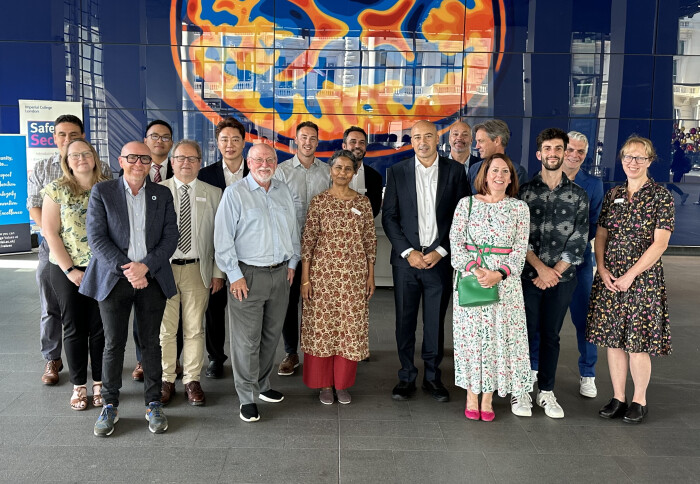The London Self-Care Summit: Clarifying R&D priorities for self-care
by Jack Stewart

Experts and leaders explore the future of self-care research, policy and practice of self-care at London summit.
The London Self-Care, Health & Wellbeing Summit was held earlier this month at Imperial College London’s South Kensington Campus. The Summit was hosted by Dr Austen El-Osta of the School of Public Health’s Self-Care Academic Research Unit (SCARU).
This dynamic one-and-a-half-day event brought together 18 thought leaders from across the world to examine and debate the intricate landscape of self-care research with a focus on implications for self-care policy and practice. The Summit helped clarify the urgent research and development priorities for self-care, focusing on how self-care could be leveraged to prevent and respond to chronic disease as well as maintaining health and wellbeing over the life course.
Summit discussions focused on a range of topics central to the overarching theme of self-care, health and wellbeing including self-care conceptualisation, measurement and evaluation, and mechanisms to help democratise access to self-care interventions, products and services. The summit delegates also considered how self-care could be leveraged to tackle the rising epidemic of non-communicable diseases and explored the important role of healthcare practitioners, health systems and policymakers in promoting self-care for public and patient benefit.
Professor Jon Adams, in his opening address, succinctly laid out the objectives of the Summit, and this was followed by ‘A Brief History of Self-Care’ keynote address by Dr Austen El-Osta.
“In the heart of London, we ignited a transformative dialogue among thought leaders and uncovered the path to shape the future of health & wellbeing. We collectively defined the vital research priorities for self-care as a means to tackle the rising epidemic of non-communicable diseases, and so-called “diseases of the lifestyle”. This summit marked the genesis of a new era in self-care thinking & was a great meeting of minds with no agenda other than to think of ways to promote self-care praxis for people's benefit." said Dr Austen El-Osta, Director, SCARU.
Participants in the roundtable discussions included representatives from leading organizations including the International Self-Care Foundation, the Self-Care Forum UK, the Global Self-Care Federation, the World Health Organisation, the International Pharmaceutical Federation, the Personalised Care Institute, the Royal College of General Practitioners, Innovate UK and the British Medical Journal. Leading academics from Australia, Brazil, Canada, Denmark, Hong Kong, Thailand and the United Kingdom also contributed their insights and expertise.
The overarching purpose of this event was to foster thought leadership concerning the profound impact of self-care on the health and wellbeing of individuals and communities. The proceedings of the Summit will be published in the British Medical Journal (BMJ), and plans are already in progress to establish the International Academy for Self-Care Research (IASCR) – a joint venture between key academic institutions and open to all researchers with a commitment to the rigorous, transdisciplinary examination of self-care.
This thought leadership event was made possible through the generous support of a grant from the Worldwide Universities Network awarded to Distinguished Professor Jon Adams of the School of Public Health at the University of Technology Sydney, Australia.
“As we embark on the journey to establish the International Academy for Self-Care Research (IASCR), we’re looking to strengthen and expand understanding of the many complexities around self-care through critical rigorous investigation. The Academy will provide much needed coordination and momentum for all on the global stage researching self-care. A driving focus of the IASCR will be upon co-design and partnership with community and other stakeholders to help inform innovative solutions to the challenges of self-care and to shape the very essence of self-care philosophy and best practice for generations to come.” Distinguished Professor Jon Adams, School of Public Health, University of Technology Sydney
Article text (excluding photos or graphics) © Imperial College London.
Photos and graphics subject to third party copyright used with permission or © Imperial College London.
Reporter
Jack Stewart
School of Public Health